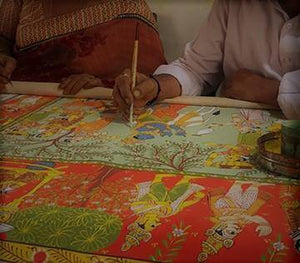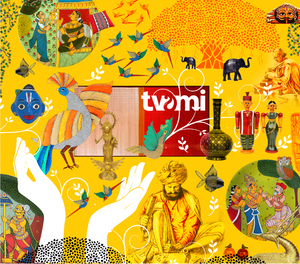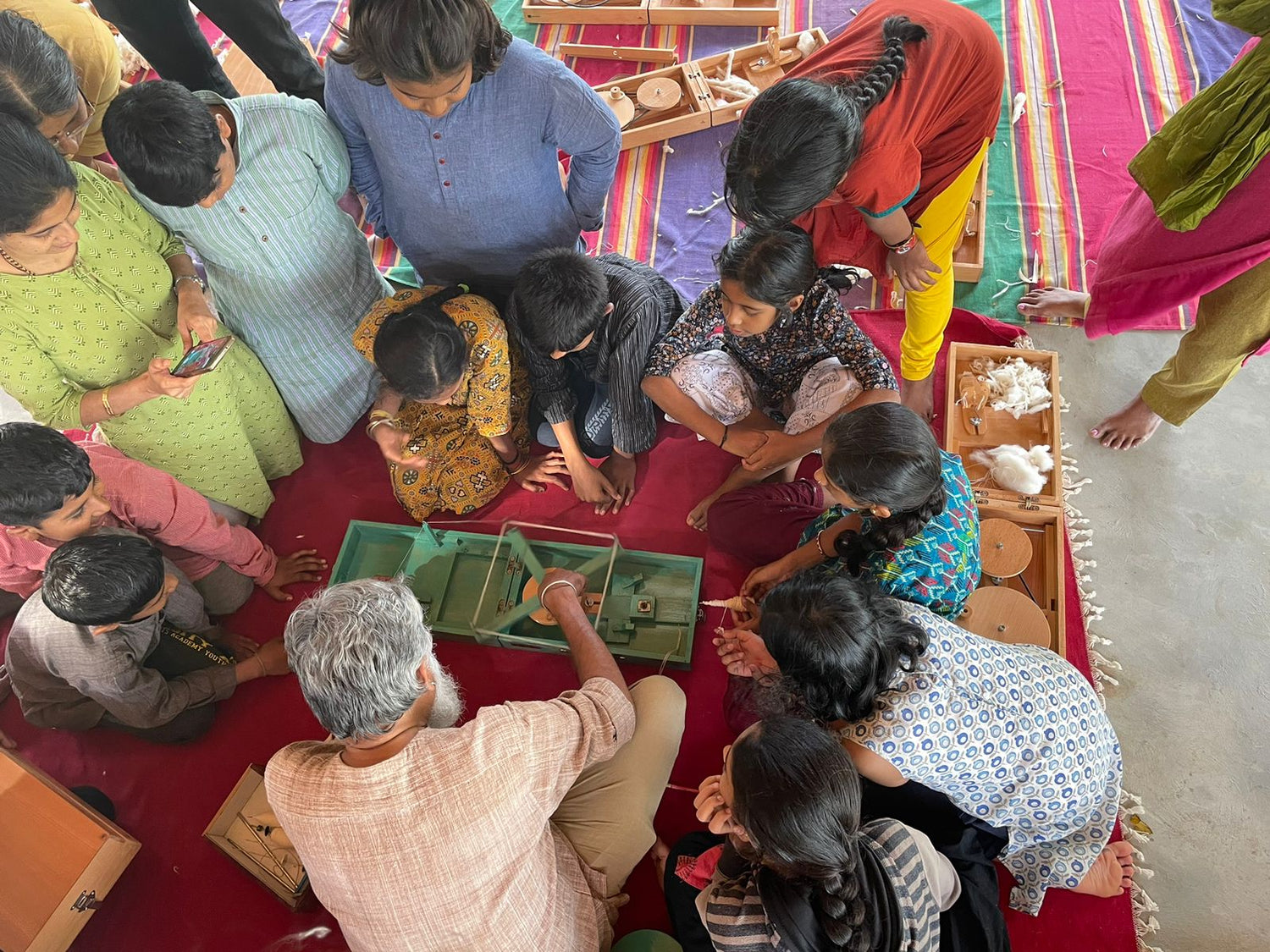The first thing that stands out about Durgesh Maravi is his positivity. Despite the woes faced by his craft and the overall industry, he remains an artist ever ready to uplift others by sharing his skills through teaching.
Gond is a craft inspired by nature and fused with an individual artist’s imagination. Durgesh began practicing Gond at a young age when his mama and mami took him to Bhopal to learn the craft. “Initially, it was doing art. Then as I drew and painted everyday, it became a part of my mind. “, Durgesh explains. It’s been twenty years since he began.
‘Labhed’ is based on true stories which were recited to them by their ancestors which are unwritten in the scriptures. Stories from the Vedas are depicted as well. But ultimately, it is the elements of nature that form the core of his Gond work.
For ideas, Durgesh looks around and visualizes an alternate world or way of being. He thinks about an animal and wonders what else they could be. For example, if he sees a fish, he gives them wings.
His best work is about human life when he depicts humans being re-incarnated into this form after taking 42,00,000 births as other beings.
Duresh works alone in Dindory village in Madhya Pradesh. He has studied till the 12th grade. During the monsoons, his family struggles as they live in an old kaccha house and water seeps through the roof.Even traveling for raw materials like pens and sheets needed for Gond becomes a challenge.He has to travel to bigger cities like Bhopal to get them and it ends up taking nearly four days.
Although the craft has just been in his family for about forty years, it is now being practiced by him and his two brothers.
He loves being an artist but due to the struggle to make ends meet, must work as a farmer as well. Durgesh switches between both. “It’s hard because this constant switching takes a toll on me – physically and emotionally. I must work harder to make sure the quality of my art isn’t affected. I am even ready to work for twelve hours straight to meet orders.
Although the craft has just been in his family for about forty years, it is now being practiced by him and his two brothers.
But Durgesh remains upbeat and is happy to teach the craft. “If more people do – why not? I am proud of it. I want competition so it will grow visibility.”
Durgesh does not believe in feeling sorry for himself and. “Positive attitude towards things and people makes a lot of difference.”, he concludes.



